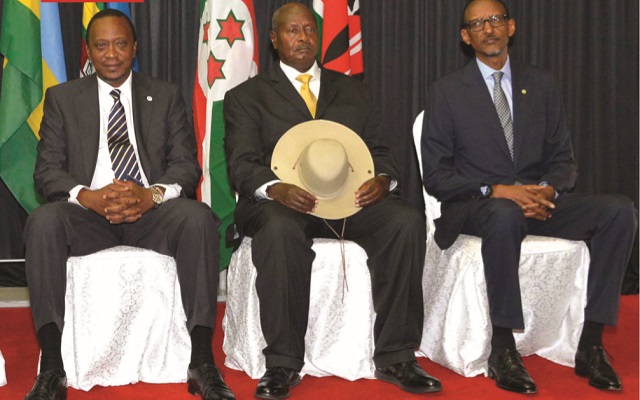
AIRIS proposes a cautious approach but its conference on integration proves explosive
Kampala, Uganda | IAN KATUSIIME | For anyone trying to understand the current spat between erstwhile BFFs Rwandan President Paul Kagame and his Ugandan counterpart Yoweri Museveni, attending a recent conference in Kampala by a new NGO on regional integration in Africa seemed perfect.
The NGO, African Institute of Regional Integration Studies (AIRIS) held the conference on March 15 under the theme, `Legal, Economic and Business implications of East African Integration.’
The venue at Naguru Skyz Hotel was packed with lawyers, academics and business people and they appeared determined to unpack the integration agenda and some of the complexities facing the East African integration process.
For an NGO formed just last October to offer research, training, and advisory consultancy on regional integration, the timing of its first annual EAC conference could not have been better. Well, maybe not.
The AIRIS chairman, James Ogoola, who is a retired distinguished judge of the High Court of Uganda renowned for interesting word-games sought to flag off the discussion with some cautious views. He called the integration of Uganda, Kenya, Tanzania, Rwanda, Burundi, and South Sudan under the East Africa Community (EAC), now in its 20th year, an “experiment”.
“There have been numerous experiments on integration in the EAC since its first days in the sixties because there was a common currency and a common services organization,” Ogoola said, “This conference is dedicated to a review of the impact of this new experiment of the East Africa Integration.”
Then, quite aware that what was on everyone’s mind was the closure of the common border with Uganda, Ogoola attempted to bring similar caution in that debate.
“What is happening between Rwanda and Uganda has totally nothing to do with EAC but a lot to do with the bilateral relations between the two countries,” he said. It was a dexterous fumble.
Other speakers, such as Francis Gimara, a former president of the Uganda Law Society (ULS) and Managing Partner of ALP Advocates and Isaac Bakayana, a lawyer and lecturer at Makerere University immediately rejected it.
“Bilateralism cannot be pleaded when it comes to international obligations,” Gimara said and advised partner states to always honour international obligations under the EAC Treaty.
“I am handling a case where Kenyans are appealing to the ministry of internal affairs over denial of work permits,” he said.
Gimara said Kenya is also denying work permits to Ugandans in large numbers and that requiring permits for minerals to cross borders was another hurdle in the EAC. And he blamed the problems in the EAC integration on its leaders.
He said whereas the leaders are always appearing glossy at EAC summits purporting to make the integration a smooth process, lawyers like him are always handling cases of ordinary people caught up in inter-state hurdles.
“The harmonisation of laws across services and sectors in East Africa is far from completion,” he said.
“Is a poor woman from Kapchorwa crossing the border into Kenya, for example, violating the treaty?” he asked. Yet, he said, such people are routinely arrested.
Other speakers cited an incident in 2017 when over 1000 cows belonging to Kenyan pastoralists were auctioned off by the Tanzanian government over alleged grazing in Tanzanian national parks.
 The Independent Uganda: You get the Truth we Pay the Price
The Independent Uganda: You get the Truth we Pay the Price




What if we spent our precious time and resources on more worthy things than pretending that us Africans might one day be willing and able to unite in any way? I’m not an Afropessimist, just a realist… EAC is a joke that stopped being funny long time ago (same with useless AU). Maybe it’s time to let it go?
I’m happy about the news
Atleast good way of over coming the conflict should be revised